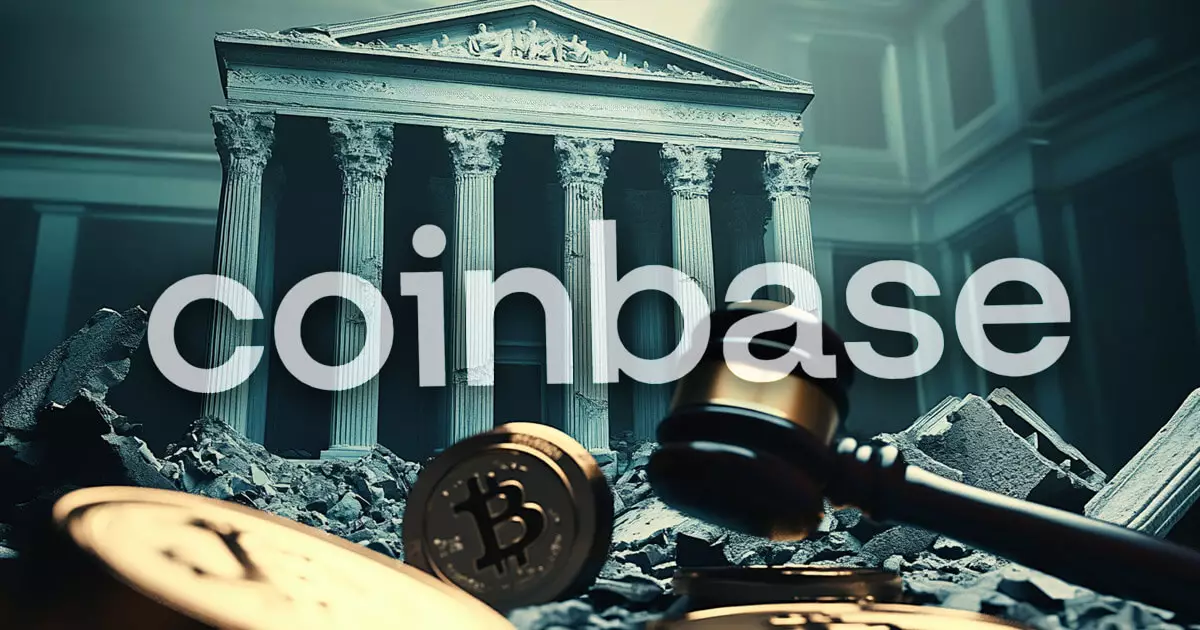In the realm of cryptocurrencies and digital assets, regulatory clarity has become an essential concern for industry leaders and stakeholders. On October 18, 2023, Coinbase—a prominent cryptocurrency exchange based in the United States—took significant steps to address this issue by filing two new Freedom of Information Act (FOIA) requests. This initiative underscores not only Coinbase’s commitment to ensuring transparency in the regulatory landscape but also reflects a growing awareness among crypto firms of the need for clearer guidance from governmental authorities.
The two FOIA requests submitted by Coinbase were directed at the Federal Deposit Insurance Corporation (FDIC), with History Associates Incorporated acting on behalf of the exchange. The focus of these requests is particularly important; the first seeks clarity regarding a 15% deposit cap allegedly imposed on various digital asset companies by several banks. This cap reportedly affects some of the key banking players in the crypto industry, including Signature Bank and Silvergate Bank. By seeking documentation related to this deposit cap, Coinbase aims to shed light on how banking regulators are shaping the landscape for digital asset firms while also understanding any potential limitations placed on these institutions.
Moreover, Coinbase has requested information concerning interactions dating back to June 2022, involving FDIC board members and staff, as well as officials from other significant governmental financial institutions, like the Federal Reserve and the Office of the Comptroller of the Currency (OCC). This broad inquiry into administrative communications highlights Coinbase’s effort to bridge the gap between regulatory intent and operational reality in the financial ecosystem surrounding cryptocurrencies.
A critical component of Coinbase’s FOIA requests is the demand for transparency regarding the non-disclosure of requested information. If the FDIC chooses to invoke any exemptions under FOIA, Coinbase has requested a detailed explanation. This level of scrutiny reflects a broader call for accountability not only from regulatory bodies but also within the cryptocurrency industry itself. In a climate where regulatory ambiguity reigns, mining the depths of bureaucratic communication will be vital for firms aiming to navigate ever-evolving rules.
The second FOIA request aims to gain insights into how regulatory agencies, specifically the FDIC and OCC, manage FOIA requests overall. By analyzing request logs from early January to October 2023, Coinbase seeks to identify patterns in the regulators’ information-sharing practices. Understanding these practices is crucial for industry stakeholders, as it helps illuminate how regulatory authorities prioritize transparency and which information they consider sensitive or confidential.
Coinbase’s efforts are emblematic of a more significant movement within the cryptocurrency sector, as companies like Custodia Bank highlight the “lawlessness” surrounding banks servicing crypto firms. This environment creates uncertainty for both the banks and their clients, prompting calls for clearer regulatory frameworks. Paul Grewal, Coinbase’s chief legal officer, reiterated this sentiment, emphasizing that the FOIA requests complement previous requests made to the SEC that sought clarity on enforcement actions and the classification of digital assets.
By pursuing transparency from both the FDIC and the SEC, Coinbase is making a concerted effort to challenge potential overreach by regulators. This pursuit extends beyond compliance; it seeks to fortify a foundation for a more coherent regulatory environment that facilitates innovation and growth within the cryptocurrency space.
In an industry characterized by rapid change and innovation, the need for regulatory clarity cannot be overstated. Coinbase’s recent FOIA requests serve not only as an important step toward transparency but also as a clarion call for other stakeholders in the crypto landscape—investors, exchanges, and regulators alike—to work towards a more nuanced understanding of digital asset governance. By asking essential questions and holding regulators accountable, Coinbase positions itself not just as a participant in the crypto market, but as an advocate for a regulatory framework that supports growth, innovation, and integrity in the financial ecosystem. As this discourse unfolds, the hope is that clearer regulations will emerge from the complexities of the current landscape, benefiting all parties involved in the burgeoning world of digital assets.

